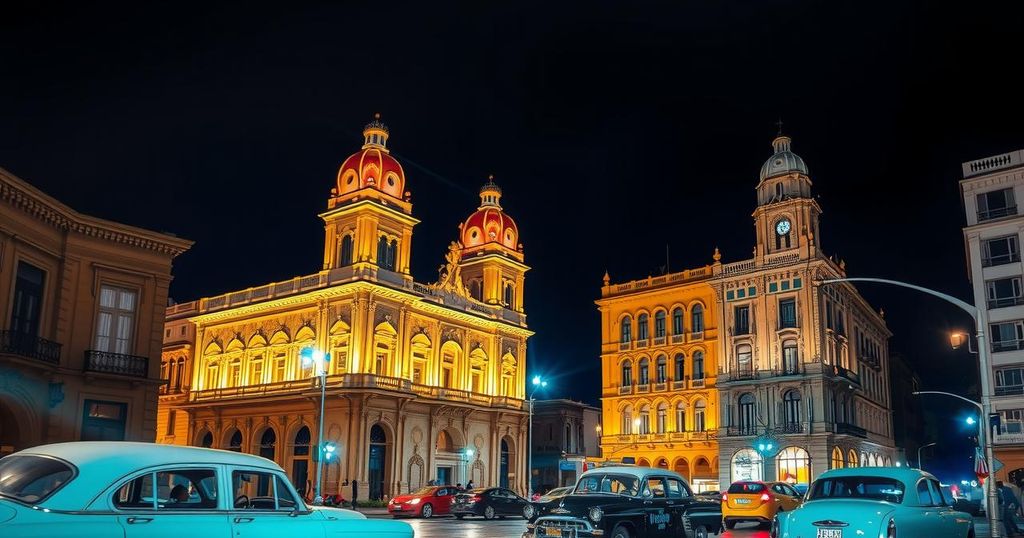Following a nationwide blackout, Cuba has begun restoring electricity in Havana, where 19% of customers regained power. The Felton power plant was restarted, while the crisis strains resources and raises concerns over food spoilage. The blackout was linked to abandoned infrastructure and U.S. sanctions, prompting moves towards solar energy development.
Cuba’s capital, Havana, began to witness a gradual restoration of electricity following a nationwide grid collapse that affected approximately 10 million residents. As of Sunday morning, about 19% of Havana’s clients had their power restored, although a full recovery timeline remains unspecified. The Felton power plant, a crucial facility for the eastern provinces, was restarted, but the Antonio Guinteras plant in Matanzas is still offline.
Many residents expressed concern over the potential spoilage of frozen foods after enduring nearly 36 hours without power. Since the blackout began around 8:15 p.m. on Friday, much of the densely populated city, with a population of two million, has struggled with power shortages. Only certain tourist hotels, some restaurants, and establishments with generators maintained electricity during this time.
The blackout originated from a short circuit in a Havana substation, leading to a total power generation shutdown across the island — the fourth such incident since October. Cuba’s aging oil-fired power plants, failing to meet energy demands amid reduced oil imports from Venezuela, Russia, and Mexico, reached a crisis point last year. Many Cubans were already accustomed to extensive daily blackouts exceeding 20 hours.
The government attributes the ongoing energy crisis to a longstanding U.S. trade embargo coupled with recent sanctions implemented by former President Donald Trump. In response, authorities are working to enhance energy production through large-scale solar farms in partnership with China, aiming to reduce reliance on outdated oil-based generation systems.
In summary, Cuba is currently in the process of restoring electricity after a significant blackout affected millions. The government is tackling challenges posed by an outdated energy infrastructure and foreign sanctions. Ongoing efforts to introduce solar energy resources reflect a strategic shift aimed at enhancing energy independence and stability for the Cuban population.
Original Source: www.usnews.com






